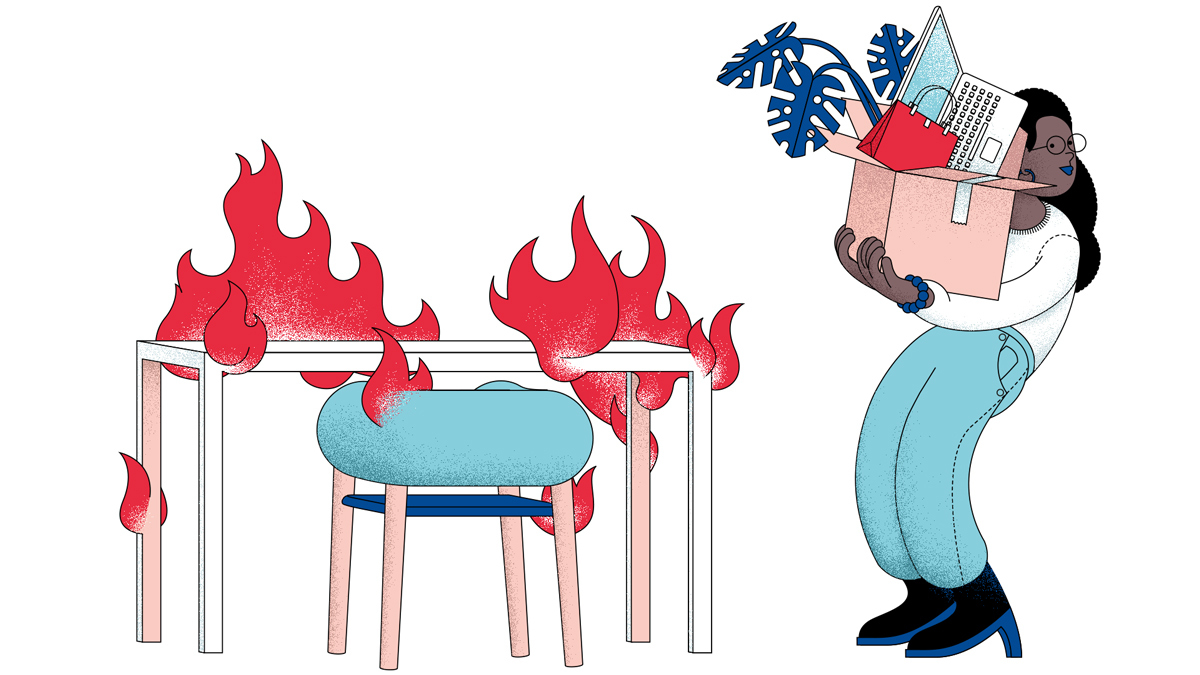
The switch to hybrid working has seen the return of one of the most contentious workplace policies – hot-desking.
There was a time when asking workers to compete for seats every morning and clear their workspace in the evening would have been met with fierce opposition. In 2019, recruitment site CV Library listed it as one of the most common office rules that employees “secretly hate”, while a 2012 survey of social workers found that 90% of staff who had been asked to hot-desk thought the policy sapped morale and increased levels of stress.
However, with most people now splitting their time between the office and home, and the cost of commercial property at a premium, businesses are increasingly unwilling to provide a permanent, personal desk for every employee.
Even if staff understand the reasons, this hasn’t stopped them from voicing their annoyance. In Canada, one Bank of Montreal employee claims to have given up coming into the office altogether because of the hot-desking issue, while civil servants in the UK have also complained about a lack of desk space following cuts to the government estate.
The psychology of hot-desking
But what makes it such a contentious issue? University of East London occupational psychologist Sonya Dineva claims it’s all to do with our sense of belonging.
“Humans have a deep-rooted inherent need for belonging and this needs to be present in our places of work,” she says. “Having to clear your desk at the end of each day means that people can’t identify with these spaces and this need for belonging is not satisfied.”
Humans have a deep-rooted need for belonging and this needs to be present in our places of work. Having to clear your desk at the end of each day means that people can’t identify with these spaces
Creating a “subconscious identification with your work environment” is important for creating this feeling of belonging, Dineva adds. This can involve anything from having your name on the door, photos on the wall or plants on your desk – but these are things that hot-desking generally doesn’t allow for.
Is hot-desking harming productivity?
Competing with colleagues for a desk in the morning can also have consequences for productivity. A 2019 study claimed that hot-deskers spent an average of 18 minutes hunting for a workspace. This is in addition to the time a worker might spend downloading software or collecting equipment that they may need to complete their daily tasks.
Dineva says: “People want to know their set-up is going to be the same each day because it takes time to adjust our working environment to our own requirements. This reduces productivity and also has cognitive effects on our performance.”
Office space provider Sharespace is experiencing issues with the return of hot-desking. The company’s co-founder and CTO Marcin Dyszyński says: “We’re seeing that hot-desking doesn’t create that company culture and the sense of permanency that many people would like. Similarly, there can be a lack of privacy with hot-desks, which might be a problem for some businesses.”
How can you solve the hot-desking problem?
One solution to some of the problems with hot-desking is desk-booking software. Providers such as Appspace and Juggl Desks claim that use of their workspace-booking platforms have been on the rise since the start of the year and anticipate that numbers will continue to rise as people return to the office on a more regular basis.
Juggl Desks’ head of business development Jeremy Steward says: “Workers want the reassurance of knowing that when they attend the office, they’ll have a desk allocated to them. Many organisations have reduced desk space in response to hybrid working, so workers can’t always turn-up to the office on a whim and find a free desk. Being able to reserve a desk of their choosing, perhaps with certain facilities near to hand, can help provide peace of mind.”
Dineva believes that such systems can bring a level of predictability to workplace arrangements that can benefit staff. However, desk booking should not be regarded as a catch-all solution.
She says: “It can be very beneficial to use a booking system or app, especially if it allows people to book a workplace that is somehow tailored to their needs. But this can still lead to competition for the best workspaces – no system will be perfect.”
Another option is to allow people to bring in personal items to display in common areas. “This can be a wonderful conversation starter but at the same time, it shows staff that they belong,” Dineva says.
Ultimately, there’s no one-size-fits-all approach. Many businesses believe that the benefits of getting teams back into the office far outweigh any short-term frustrations that hot-desking may bring. But, if solutions to the desk-hopping conundrum aren’t found, they may see the number of people coming into the office begin to dwindle.
